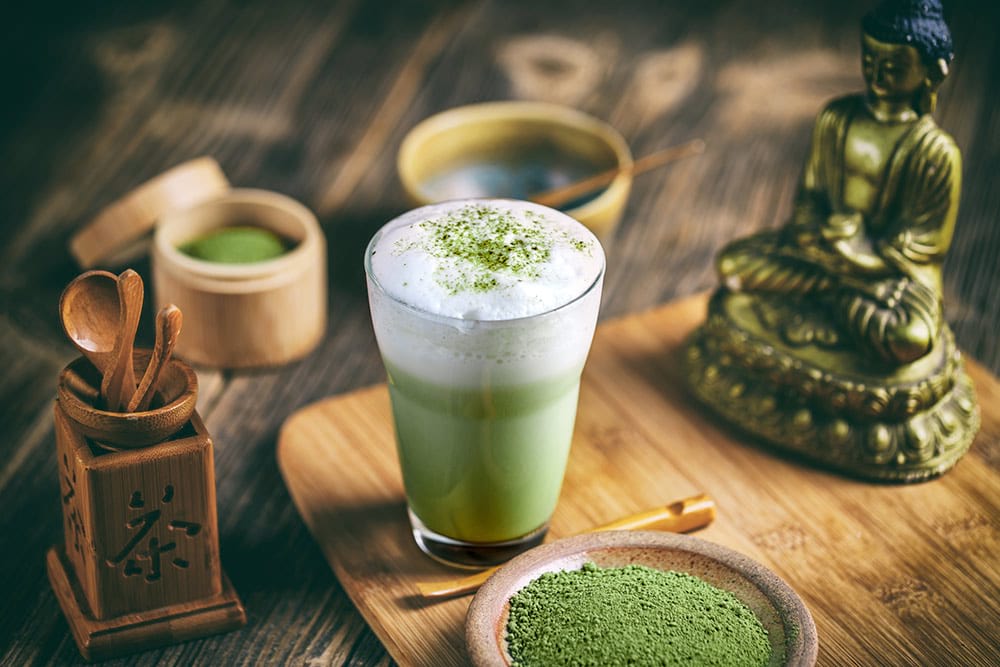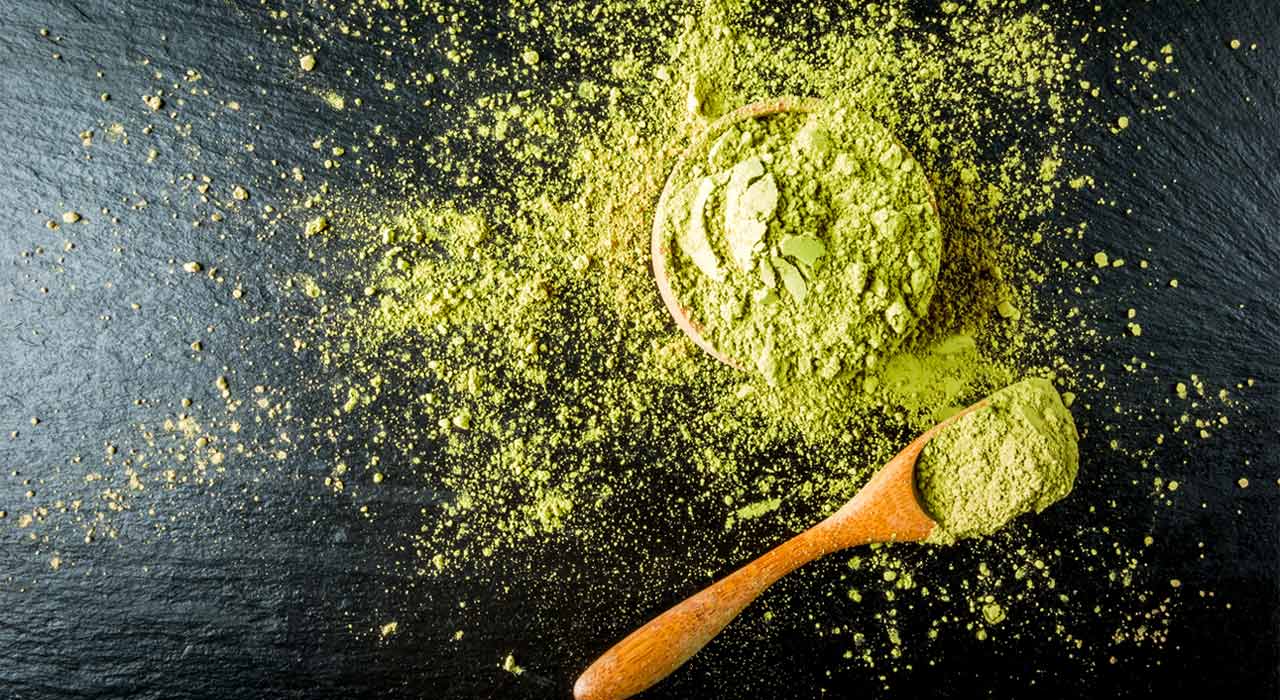By Harriet Mallinson | Published on June 15, 2017
These days matcha is a buzzword for wellness and healthy living. It’s everywhere, from lattes and brownies to Gwyneth Paltrow toting flasks of the green stuff to yoga class.
But what exactly is this substance that’s supposed to be oh so cleansing? Well, matcha literally translates from Japanese to “powdered tea†and comes from green tea leaves. Traditionally served in Japanese tea ceremonies, these leaves are ground up, mixed with hot water and then whisked with a bamboo brush until frothed.
The tea was introduced to Japan by 8th century Zen priest, Eisai, who called matcha “the ultimate mental and medical remedy with the ability to make one’s life more full and complete.†In layman’s terms? It can help provide a much-needed energy boost, help restore a natural sense of calm and is bursting with anti-oxidants.
If it’s made from the same stuff as green tea, why is matcha any better?
Green tea is consumed as an infusion and the leaves then thrown away, but matcha is purely made from the leaves so all the goodness is retained. Along with various vitamins and minerals, matcha is a potent source of catechins, a type of antioxidant.
One type of catechin is epigallocatechin gallate (EGCG), an antioxidant which is linked to fighting cancer, viruses and heart disease. One study found that matcha has three times more EGCH than standard green tea. In total, matcha powdered green tea is said to have 137 times more antioxidants than regularly brewed green tea.
Matcha might well be linked to weight loss, a study published in the American Journal of Clinical Nutrition found. Researchers concluded that a cup of the tea “might be useful in the prevention and improvement of lifestyle-related diseases, mainly obesity.â€
There are also energy benefits. The green stuff contains 24–39mg of caffeine per cup which means you feel the vitality boost without the nervy jitters that can come with coffee.
Matcha could help protect your skin in the sun, too. A study of 60 women found that those drinking a high catechin green tea every day showed reduced skin redness in response to UV light, suggesting their skin was better protected against the harmful effects of sunlight.
They also experienced improvements in skin elasticity and reduced skin roughness compared to the non-tea drinkers.
Other research suggests that matcha can speed physical recovery after workouts, promote cell strength and boost immunity.

How can I start including matcha in my diet?
Matcha can be purchased in its pure form as either individual shots or tubs of the powder, as well as in capsules.
Here’s how you can incorporate it into your food and drink:
Get your hit first thing
If you want to get a head start on your morning, try sprinkling matcha over your morning granola. The energy boost makes it a perfect replacement for your morning coffee with breakfast.
Dinner-time magic
No stir-fry is complete without authentic seasoning; however instead of reaching for the salt and pepper try adding matcha instead. Not only will it give your taste buds a little lift, it’s vibrant green shade will make any stir-fry look irresistible, before it’s even been sampled.
– RELATED: What Is The Healthiest Coffee To Order? –
Bake away
Not all baking has to be traditional, so why not experiment next time you feel like whipping up something sweet. From cakes to doughnuts, matcha provides a little twist to any baked good. What’s more, it’s been found that matcha green tea may help increase fat burning, help reduce fat absorption from food and may even help to control appetite.
Double green
Super charge your post work out green smoothie with a matcha shot. Cassandra explains: “The anti-inflammatory effects of the catechins in matcha could make it helpful for keeping our joints flexible. Catechins are thought to help to prevent joint damage and the development of arthritis.â€
Back to basics
It’s been used in traditional Japanese tea ceremonies for over 900 years so go the traditional route and kick back with a revitalizing cup of ceremonial grade matcha tea.
Or, if you want a cold drink, try mixing it up and add matcha into your bottle of water and sip throughout the day. “Another bonus of matcha green tea over coffee is that while it can give a gentle energy lift, it can also help us feel calmer,†says Cassandra. “This is thought to be thanks to an amino acid called L-theanine in green tea.
“L-theanine has been found to increase alpha waves in the brain, helping to relax the mind without causing drowsiness,†she adds. “What’s more, matcha green tea in particular is said to have a high percentage of relaxing theanine.â€
Harriet is Editor of MACROS and perfectly capable of eating an entire log of goat’s cheese in one sitting.

